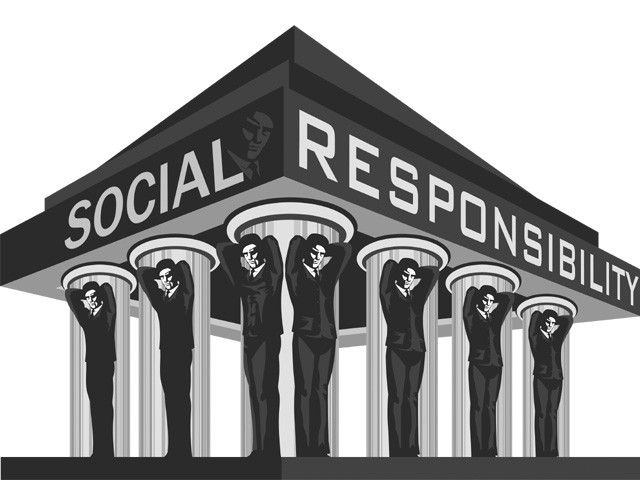Corporate social responsibility: The new face of business
Using social responsibility to kill two birds with one stone, give back to society and add to your business.

The advances in telecommunications and the internet are quickly changing business models and making the business environment even more competitive. Businesses are constantly striving to find new and innovative ways to differentiate their products and services. Some take a rational approach by promoting facts and product features, and while others appeal to customers’ emotions. The new trend is for businesses to convince their customers that they care, are good corporate citizens, and appeal to altruistic and spiritual factors.
At the same time businesses face a lot of pressure from civil society and government to focus beyond profits and contribute to society. The emergence of corporate social responsibility as a recognised function within the corporate sector is a direct result of this pressure. The premise of this article is that in reality, ‘the business of business is business’. To engage the businesses truly in any meaningful way towards social goals, we need to explore the business case of ‘doing good is good business’.
Businesses support society in a number of ways. Foremost among them is providing goods and services to meet the needs of consumers. Other major contributions include providing employment opportunities to public and paying taxes for the functioning of government. In addition to these essential activities, businesses usually give to charities and engage in corporate philanthropy. The most that businesses stand to gain from this kind of generosity is an enhanced image of a good corporate citizen. There is no direct benefit to the businesses.
Since 1981 a new type of sales promotion has been witnessed in the corporate world, called Cause Related Marketing (CRM). It is a specialised marketing tool for sales promotion with a social dimension. It involves a corporate organisation promising customers that it will donate a portion of its sales to a charity in order to increase its sales. This gives the customers an opportunity to do ‘pain-less charity’ while they go about buying things of everyday use. The corporate organisation benefits through increased sales, improved image and motivated employees. The charity gets much-needed funds and gets its message across. The consumers get a good feeling by supporting a cause. The ideal win: win: win situation is the reason for marketers’ high level of interest in this emerging discipline.
CRM is the confluence of several factors including sales promotion, corporate social responsibility, individual philanthropy, consumer buying behaviour, advertising, etc. According to research, consumers view CRM campaigns favorably and gender or income does not have any impact on such attitudes. Currently CRM is estimated to be a $1 billion industry and reportedly 76% of consumers are willing to switch to a brand that supports worthy causes, provided the price and quality are at par with other goods. The number of consumers who are willing to pay a little extra is about 58%. The number of consumers who are willing to try a new brand if they already consume the category is 54%.
Consumer behaviour specialists have linked this increased support of CRM to the third wave of branding. The theory rests on notion that consumers are now interested in finding out ‘what is it that a company stands for’. This third wave of branding is based on spirituality and is different from the earlier trends of rational and emotional appeals of branding. The advantages of CRM go beyond increasing sales and profits for a business. The business is able to differentiate its products or services from the competitors, based on its association with a social cause that consumers care about. Among other advantages are increased customer loyalty, free media coverage, improved employee motivation and better relationships with other stakeholders including channel members and government. Different researchers have reported that employee morale is up to three times higher in companies with a strong degree of community involvement. This satisfaction when coupled with opportunities for employee volunteering can increase employee retention.
There are various options for a business to engage in CRM. The most common is giving a percentage of sales to a nonprofit organisation. Other choices that can be used to sweeten the deal and increase the impact of CRM are licensing opportunities, using nonprofits as suppliers, donating in kind, sharing office or cyber space, and employee volunteering time.
CRM is increasingly being used by marketers and has increased by over 150% over the last three years. The key variables of a CRM campaign that influence a consumer in switching a brand or increasing purchase quantity include a corporate organisation’s existing image, importance of the cause to the target audience, and the amount being donated. However, it is important to note that companies with good or neutral image gain from such campaigns while companies with an existing negative image tend to lose more credibility through such campaigns. (Tobacco companies watch out!)
It is important for businesses to consider two factors while selecting a social cause for its cause related marketing campaign. Firstly, the cause should be related to the company’s business and secondly, the company can own the association with the cause. For example, AVON a company dealing in cosmetics has for two decades linked the sale of its products to funding for breast cancer research. To own the association in the minds of customers requires long term commitment. The challenge is that when companies sprinkle their philanthropy to all soft issues like education, health, environment, etc. they don’t “own” the association with any one of the causes.
the writer is Vice President of The Citizens Foundation and can be contacted at ahson.rabbani@thecitizensfoundation.org
Published in The Express Tribune, February 21st, 2011.



















COMMENTS
Comments are moderated and generally will be posted if they are on-topic and not abusive.
For more information, please see our Comments FAQ